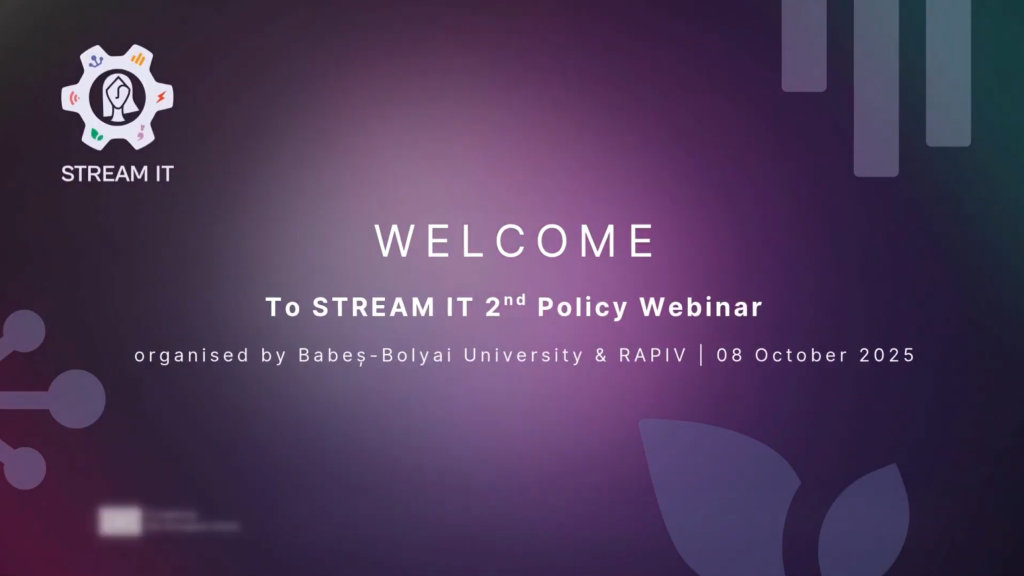STREAM IT-Gender Equality in STEM education Webinar

Bridging the Gender Gap in European STEM: Data, Dialogue, and Determination
On 8th October, our Managing Consultant, Liubba El Hadi Hamed participated at the State of Gender Equality in STE(A)M in Europe Webinar, offering an overview of Women in Digital initiatives across Europe and assessing their visibility, focus and impact on women leadership.
Europe’s gender equality efforts in STEM are increasingly grounded in research and evidence, a range of initiatives and collaborations are providing the data, dialogue, and policy momentum needed to make lasting change.
Jade Iafrate, from the European Commission DG RTD presented the key finding from She Figure Index. It stands as one of the most comprehensive tools for tracking gender equality in the European Research Area.
- What it does: it uses around 20 indicators, grouped into six dimensions, to give a holistic picture of where women stand in research and innovation.
- Why it matters: by highlighting trends and disparities, it helps policymakers and institutions design more targeted interventions.
Understanding the barriers: what female STEM students face
Research from the STREAM IT Project, presented by Réka Geambașu of Babeș-Bolyai University, shed light on the complex challenges confronting women studying STEM across Europe.
Through semi-structured interviews with students from different countries and disciplines, the study identified seven key categories of challenges:
- Belonging and visibility:
- Lack of mentorship and role models
- Pedagogy and practical exposure
- Guidance gaps
- Psychosocial load
- Access and mobility barriers
- Cultural contexts
Women in Digital: spotlighting leadership in ICT
The Women in Digital Project, represented by Martina Longo of IDC and Liuba El Hadi Hamed from BluSpecs, brought the focus onto the ICT sector, a field that both drives and reflects Europe’s digital transformation.
Based on a 2025 survey of 4,454 respondents across the EU, the research shows that women make up just 19% of ICT specialists, far below the EU’s Digital Decade target of 20 million ICT professionals by 2030.
Key Findings from the Women in Digital Survey
- 66% of women believe gender norms still hold them back.
- 47% feel they must work harder than men to prove their skills.
- Women rate their ICT education experience lower than men (58% vs. 62%) and report more frequent bias.
- 46% of women have taken a career break for caregiving (vs. 12% of men) and 68% struggle to return afterward.

These findings are expected to shape upcoming policy discussions, ensuring that digital transformation includes and is shaped by women.
From data to dialogue
Europe’s pursuit of gender equality in STEM is no longer a collection of isolated projects. It’s becoming a coordinated ecosystem where data informs debate, and debate inspires policy.
The journey is far from over, but each study, survey, and policy discussion brings us closer to a future where every woman in Europe can see herself in science.

